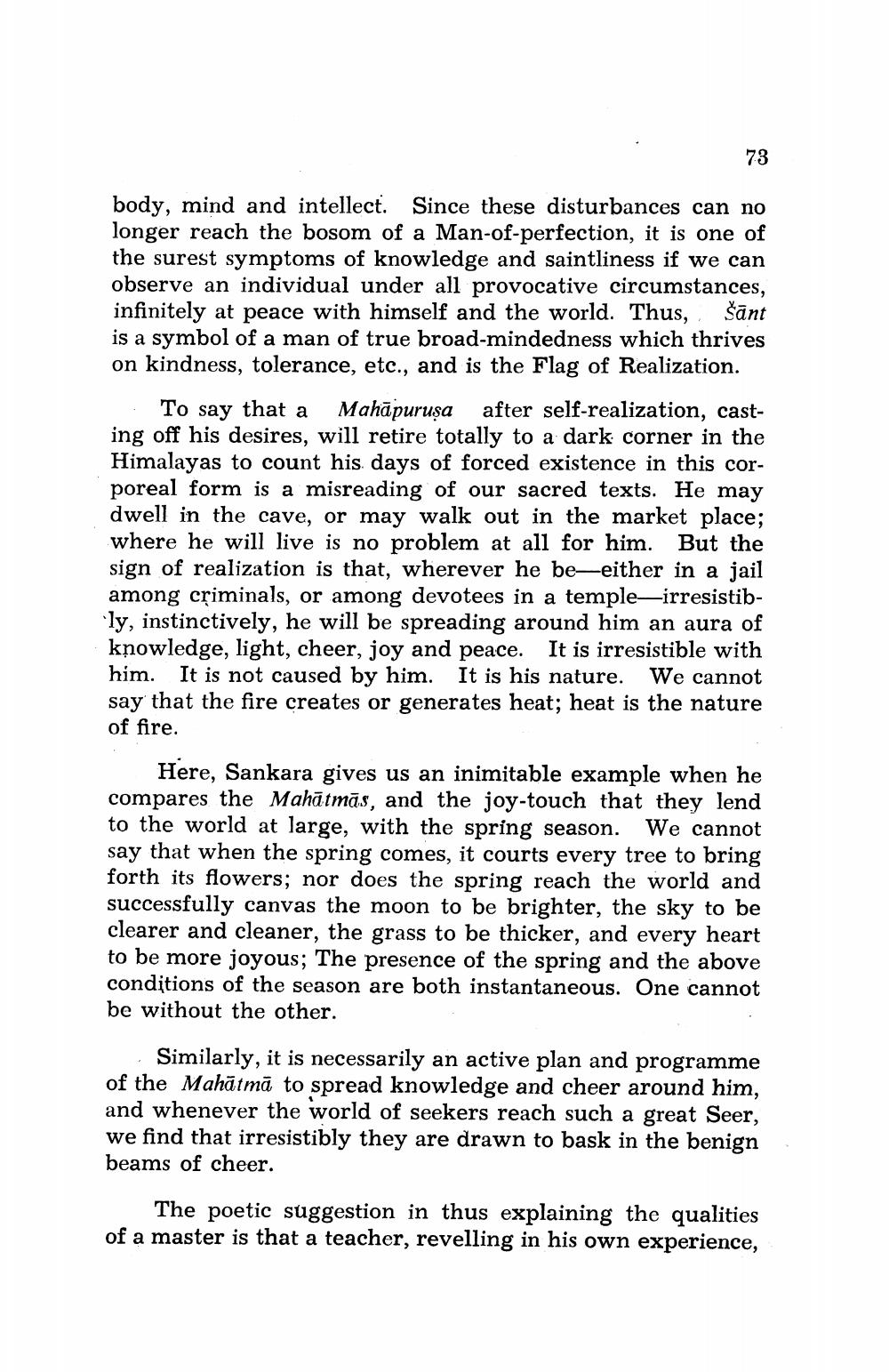________________
73
body, mind and intellect. Since these disturbances can no longer reach the bosom of a Man-of-perfection, it is one of the surest symptoms of knowledge and saintliness if we can observe an individual under all provocative circumstances, infinitely at peace with himself and the world. Thus, šānt is a symbol of a man of true broad-mindedness which thrives on kindness, tolerance, etc., and is the Flag of Realization.
To say that a Mahāpurusa after self-realization, casting off his desires, will retire totally to a dark corner in the Himalayas to count his days of forced existence in this corporeal form is a misreading of our sacred texts. He may dwell in the cave, or may walk out in the market place; where he will live is no problem at all for him. But the sign of realization is that, wherever he be-either in a jail among criminals, or among devotees in a temple-irresistibly, instinctively, he will be spreading around him an aura of knowledge, light, cheer, joy and peace. It is irresistible with him. It is not caused by him. It is his nature. We cannot say that the fire creates or generates heat; heat is the nature of fire.
Here, Sankara gives us an inimitable example when he compares the Mahātmās, and the joy-touch that they lend to the world at large, with the spring season. We cannot say that when the spring comes, it courts every tree to bring forth its flowers; nor does the spring reach the world and successfully canvas the moon to be brighter, the sky to be clearer and cleaner, the grass to be thicker, and every heart to be more joyous; The presence of the spring and the above conditions of the season are both instantaneous. One cannot be without the other.
Similarly, it is necessarily an active plan and programme of the Mahātmā to spread knowledge and cheer around him, and whenever the world of seekers reach such a great Seer, we find that irresistibly they are drawn to bask in the benign beams of cheer.
The poetic suggestion in thus explaining the qualities of a master is that a teacher, revelling in his own experience,




